So before we start, let me just briefly let you know who I am and what I do. I’m different to most digital nomads, in that I don’t have an active income source. I don’t trade TIME for money..
I actually have a system of passive income using affiliate marketing, email marketing, YouTube and selling digital products on my websites. So what that means is that although I am by all definitions, a digital nomad, I don’t HAVE to work if I don’t want to.
PS: We’ve actually got a video course on how to become a digital nomad, and earn $4K per month passive income within a year. Check out the Digital Nomad Bootcamp!
That being said, I probably work AS MUCH as a typical freelancer or other digital nomad, so I can offer a lot of tips and experiences after almost two years on the road. One other thing I should mention is that I haven’t been on the road SOLIDLY for those two years, but I’ve been traveling for most of it, in little blocks of 3-4 months.
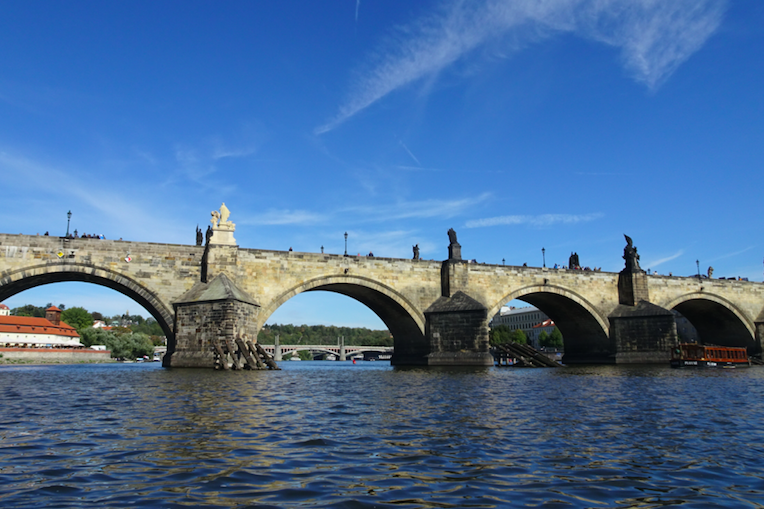
I still come home for Christmas and things like that, and I like to break up my travels in that way and make time to see family and friends etc. Now that we’ve got that out of the way, let’s talk about what I’ve learned as a digital nomad for the last two years.
Want to be a digital nomad?
One last note before we get into it, if you’d like to actually BECOME a digital nomad and you’re doing some research on how possible it is and how long it might take, I’d suggest starting with my article on how to become a digital nomad, I put a lot of effort into writing it. It opens in a new tab so you won’t lose your place here!
What I learned as a digital nomad
This is of course, a very subjective article. There are ALL SORTS of digital nomads. Some are web developers, some are musicians, writers, even actors and all sorts. For the most part though a digital nomad is someone who earns an income remotely, and usually that’s doing one of the following:
- Writing or copywriting
- Managing social media campaigns, advertising or other types of marketing
- Web development or other coding and development
- Photography or videography (especially popular for nomads to take to Instagram and negotiate free accommodation in return for promotion and photoshoots)
- Anyone who’s managed to negotiate their current job into being a remote job (This could include accountants, virtual assistants, researchers, and other backend jobs that don’t NEED you to be in a particular office)
So there are lots of options, but those are the most common. As I said I don’t do any of those really, I rely on my passive income from my websites. I might also take on some consulting or marketing gigs and at times I’ll leverage my Instagram following to get free places to stay, but not often.
Before we start properly, I’d like to say that becoming a digital nomad is tough if you don’t know what to do first. I’ve created a course that I’ll be launching very soon (it might have already gone live if you’re reading this) called the Digital Nomad Bootcamp course, which takes you from knowing nothing to having a profitable online remote business doing what you love.
1: Internet is not reliable
So I have to mention this right off the bat, if you’re relying on internet to work online, make sure you have a backup. That’s because in lots of places, you just can’t predict how good the internet will be. You might get to your hotel or Airbnb and realise that actually, the internet doesn’t work very fast, or even at all.
In my stay in Cambodia the hotel was advertised as having fast internet, but it only really worked down in the reception, and even then it was NOT good enough to do any sort of online work, let alone uploading YouTube videos or making Skype calls.

The easiest jobs to do with bad internet are probably writing or to some degree, web development, if you’re able to download the code and work on it offline, and then test it properly at the time when you DO have internet. The bulk of writing work can be done offline, and that’s what I do if the internets bad. I have a list of books and articles to write that don’t require internet.
But if you’re relying on being online to make money say if you’re managing someones social media or campaigns, you need internet. There are now lots of options especially in Europe, where you can buy a portable dongle or USB stick that brings internet wherever you go, so you never have to rely on local internet connections.
That’s probably what I’d suggest if you’re relying on being online, and it’s not too expensive either. In places like South East Asia it’s a different story, and you might have to pay a bit more, or at least know what you’re doing so you can ask for the right thing in the tech or phone shops. There are things like that out there, but I didn’t see them clearly on show, and I’m not sure if they’d be cheap.
I tended to rely on hotel internet for the most part in Asia, and it wasn’t great in places like Catba Island (Halong bay, Vietnam) and Siem Reap (Cambodia) but I think it was pretty good the whole time in Thailand in Chiang Mai.
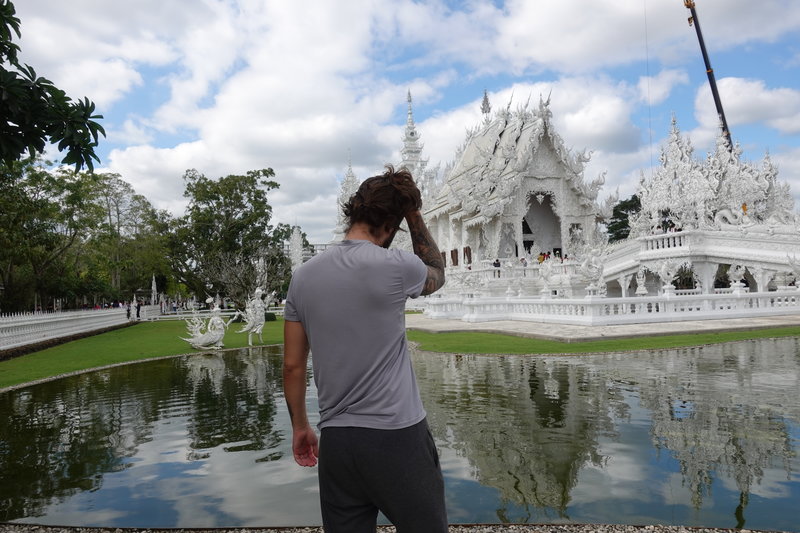
You still can’t rely on it though, and just because a hotel looks big and expensive, does NOT mean it will have good internet. Usually the bigger hotels actually have worse internet, because the rooms (depending on which one you’re in) are further from the Wifi Router. Some of them power the whole hotel with just ONE router, which means it’s also really slow when everyone’s back for the evening or in the mornings.
So bare that in mind, but also most Airbnbs which are peoples actual residences tend to have good internet, because the people living there would have made sure it worked!
2: Income will dip at the wrong moments
You’ve heard of sods law, right? It states that whatever CAN happen WILL happen. Well, traveling is not really any different. If you’re relying on a certain level of income or a certain client to pay you at a certain time, you can bet they won’t. It’s just the way the world works, you can’t rely on things like that.
There will always be problems or unseen issues that come up at the wrong time, and you have to be ready to deal with those things. The best way of dealing with problems like that is actually just having multiple income sources, a backup plan, and some savings.
3: Always have savings
This brings me nicely onto the savings point. ALWAYS go with a large pot of savings if you can. There are SO many digital nomads who turn up in places like Thailand with no money, no plan and no business, just based on seeing an inspirational Instagram video or something. I get it, it’s exciting, and I LOVE turning up in a country ready to see the beautiful sights and work remotely but you can’t do it without a plan.
At the very least, have a few thousand pounds or dollars in savings, and make sure you can access them with an international card. The best one I’ve found so far is Starling bank which lets you use your card abroad with no transfer or conversion fees. It’s completely free and you can draw out up to $300 worth every day of local cash.
You have to be careful with ATMs as well by the way, I didn’t realise this until halfway through my trip. The local ATMs in places like Chiang Mai and Vietnam try and charge you extra for no reason. If you see a message saying something like ‘Do you want to proceed with this conversion’ click no! It will still give you the money, but it will let you get the ACTUAL currency conversion rate instead of the higher rates the ATM tries to offer you.
I thought clicking no would cancel the sale but it didn’t, it just gave me a much cheaper deal. So make sure to watch out for things like that. But back to the point, make sure to bring savings with you and have them easy to access.
Good places to save: If you’re trying to build up passive income to boost your savings, or you’d like to know some good places to park your money so it earns money while you’re not using it, check out my post about passive income sources and investments, it’s a lot of detail! I spent hours researching and telling you about the best passive income sources out there and the ones I’ve personally tried!
4: Build a business before booking a flight
This is an important one so listen up. Before you book a flight, before you leave your job, and before you get all hyped up looking at travel vlogs (except mine, you can watch those!) or nomad life blog posts, BUILD A BUSINESS.
If you leave your home country without an income producing business like a website, you’re doomed to fail. You’ll run out of money FAST and you’ll be stressed. So many people just think that a few savings is enough to travel forever. It’s not.
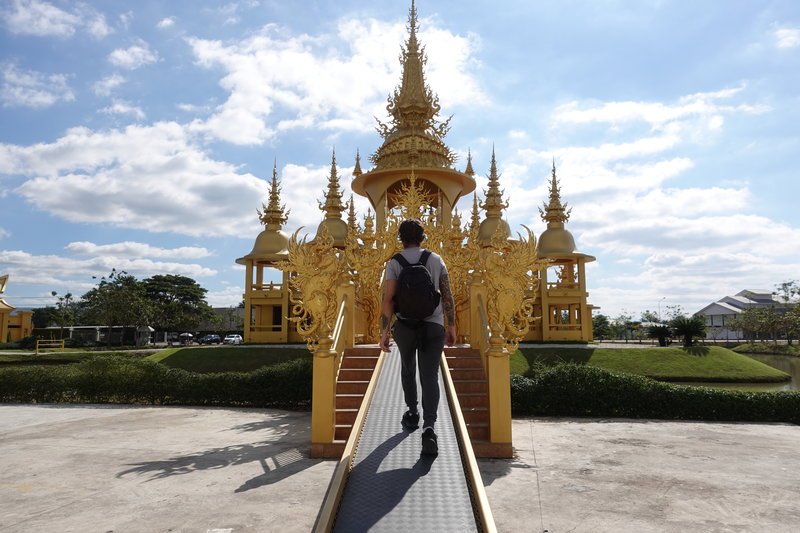
You can expect to spend about $1000-$1400 a month in most places in Asia just to survive, and this cost is doubled traveling through most parts of Europe and America.
Now you might have a good savings account but if you don’t have a business that’s earning regular money BEFORE you leave, you’ll end up in debt or with no money. Build the business first, then go traveling and work from the road. I never made this mistake luckily but lots of people do.
The best target to aim for is to be able to REGULARLY (every month) earn at least $2000-3000 from your online business or work. If you can’t do that, don’t leave until you can. It will make everything SO much easier and more fun. If you know you can earn that money, then you don’t have to worry so much about if there’s no internet for a few days or if you miss a flight and need to quickly buy another one plus overnight accommodation at the airport (I did that, it sucked).
5: Stay positive and social
Just stay positive. Be careful what you think, because your thoughts run your life. This runs true and I would highly encourage you to stay positive, even when everything seems to be going wrong. Look for the chances, the opportunities to achieve success. Don’t focus on what could stop you from getting there.
A common thought or idea you’ll hear a LOT from everyone around you when trying to be a digital nomad is things like:
- ‘That won’t work, what are you doing for a PROPER job’
- ‘Nobody earns money doing that, do they?’
- ‘You have to be really lucky to be able to do that’
- ‘You can’t earn money online it’s all a scam’
- ‘You can’t just go on holiday all the time’
These thoughts are limiting beliefs from people who just haven’t bothered to research it themselves. Of course you can live this way. You actually end up saving money by being a digital nomad because if you’re coming from either the UK or USA, your cost of living in places like Europe and Asia will be MUCH lower than you’re used to.
So why do people doubt it or hate the idea so much? It’s usually jealousy. People get jealous that THEY can’t do what you’re doing and they’re stuck in their boring office job or waiting tables or whatever it is, so they try and tell you that you can’t do it.
It’s just a limiting belief, and it really shouldn’t affect anyone but them. Don’t let them hold you back, and just live your best life! Being a digital nomad is SO MUCH more fun than a traditional work lifestyle where you only get a month or less of holiday a YEAR and you have to beg for any extra time.
6: Always ask!
NEVER be scared to ask for things you want. I’ve got into the habit of just politely asking for things that I want and seeing what happens. A great example of this is on flights. On flights, there are almost always good seats with more legroom that are available, that nobody is sitting on.
I just make a habit of asking as soon as I check into a flight for a better seat. If they try and charge me I just say oh no thank you, and move on. If they do have a seat, they just put me on the flight seat with extra leg room. This not only goes for seats but also things in hotels.
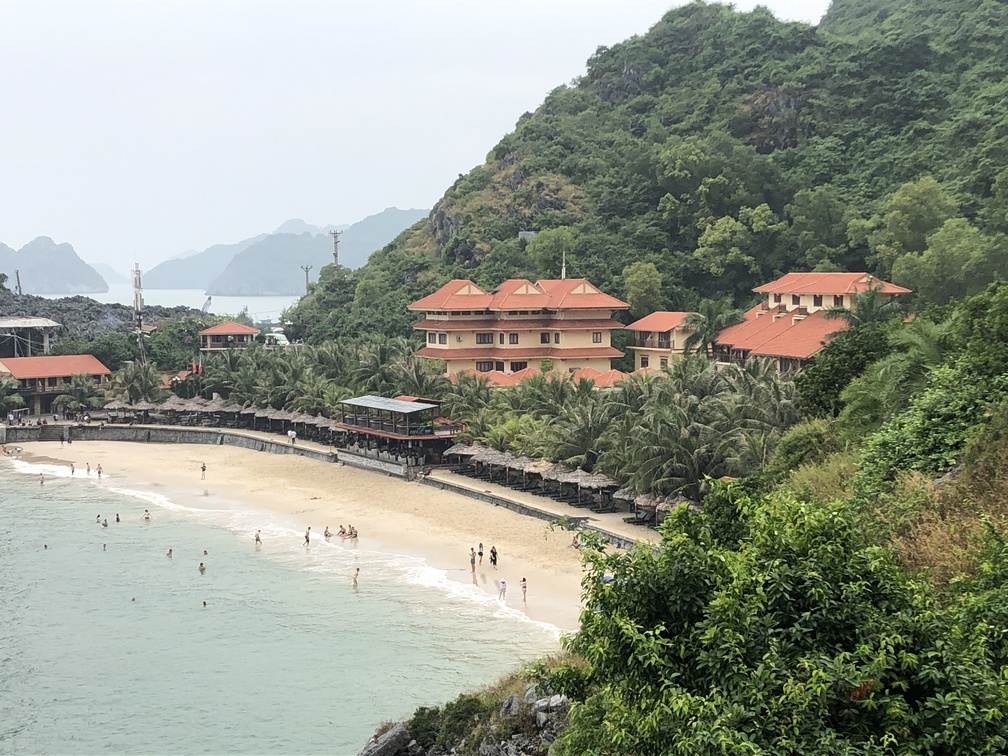
I’ve managed to get dozens of room upgrades for free, just by asking nicely. It goes something like this: ‘Hello sir, are you checking in?’ Me: ‘Ah yes hey how are you doing? Nice place! I was just wondering, I’d really like to have a room with a view, is there any way you could put me in a room with a nice view please?’
And almost always if they have a room free with a view, I’ll get it. For free, just by asking nicely. So it can’t hurt to ask, after all, the only thing they could do is say no! I’ve extended this to lots of things like for example, if I’m seeing a tourist sight, I’ll ask the staff if I can go into blocked off sections to take a ‘quick picture’ and things like that.
7: It makes me happy
Alright so going back to things I’ve personally learned while being a digital nomad, it just makes me SO happy. There are so many incredible memories I’ve created and things I’ve seen or done, while working from the road. I wouldn’t trade it for anything. I genuinely mean this, I would rather earn say $20K working as a digital nomad, and seeing incredible things every day than $2 million, and be STUCK in an office.
And that’s because money just isn’t the most important thing, at all. It’s just a way of getting things or buying experiences. So if you can find a way to earn less money but have MORE experiences, the end result is better. You can have millionaires who have never left their home country. It’s common with high end jobs and CEO/CTO roles in big tech companies, where they get paid loads but they just can’t leave their work or town because they need to work so much!
A great video to showcase how important it is to not focus on the money so much is the compilation of my last few months of travel that I made, with a few famous speeches from people like Alan Watts.
8: The freedom is unbeatable
Now, I’ve done almost every job you can think of. Toilet cleaner, bartender, digital marketing assistant, SEO consultant, salesman, and even a painter.
NONE of those jobs gave the freedom that being a digital nomad does. They can’t possibly, because they all require you to be in the office (at least, the companies I worked for did). And don’t get me wrong, I LOVED my marketing and sales jobs. I really did, and I miss the people I worked with a lot.
But, I had to move on because there’s just so much of the world to see, and so while I might have made more money working there, I would have missed out on literally thousands of incredible experiences, even in just a few months. The other thing that people find, is that when we work a certain job for a certain length of time, we get USED to the income..
And we become trapped by it. If you’re earning say $100K a year working in an office, the chances are you have an expensive car, a big house, all the streaming services, maybe even a beach home abroad and all sorts. You have a certain lifestyle, which WITHOUT the job, you couldn’t afford.
And so you’re trapped, stuck in the job to pay for the THINGS you have and the obligations you’ve created for yourself, but you’re not free. I find that the higher paying jobs are even harder to leave, because if you’re earning say $20K a month, it’s hard to walk away from that.
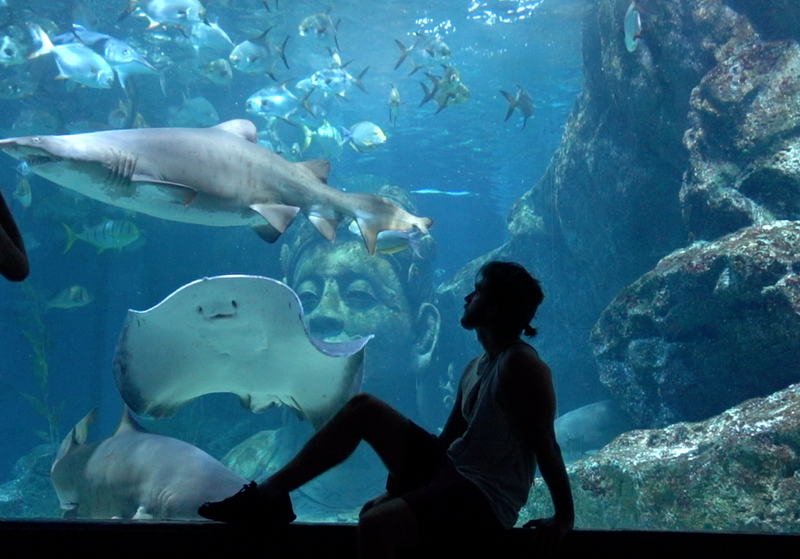
It’s even harder when you’ve slowly climbed to that point through a series of projects and promotions, building relationships and friendships and things. It’s hard to walk away from.
But if you don’t, that road doesn’t have an end. You’ll be there forever, stuck only having a month of holiday and travel per year. Forever! I’d rather walk away from the money early, and just pursue an exciting, worthwhile life doing the things I love. For me, that is travel and I know that now.
For others, it might actually BE that sales job or marketing job, and that’s FINE! That’s great in fact, but it’s important to think about what you REALLY want, and not just what you think you need to keep up with the Kardashians.
9: You’ll see some incredible things
I can’t deny that I’ve seen some amazing things I’ve seen in one year more than most people see of the world in their lifetimes, and I’m only just getting started. But I’m not saying that to boast, quite the opposite! I’m saying If I can do it, with no degree or qualifications, anyone can! Just learn the skills you need, and start trying to get there.
The sights you’ll see, and the experiences you’ll have make you a better person. You start to understand other cultures more. Other people start to make sense to you more, and you develop wisdom in a way.
It’s also so much easier to see those things when you’re working remotely. That’s because say if you’re working a conventional job, you have to book time off to go and see things like a temple or whatever in Thailand.
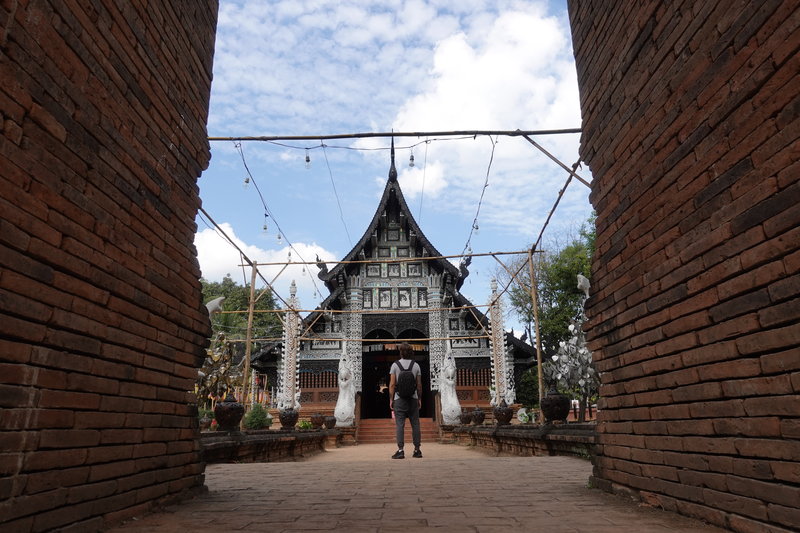
The flights are a few hundred, plus the cost of the hotel or wherever you’re saying so you end up paying quite a lot. On the other hand if you are a digital nomad, you don’t have to do that. If you’re ALREADY staying in Thailand for a few months (And it’s very cheap to pay for a place for several months in advance) you just walk down the road to see a temple.
Fancy going to the beach? Just rent a bike and go tomorrow! It’s so easy to see amazing things when you’re already living in the place, and if you want to check out Europe, just get a flight. Want to go to Bali? Get a boat or a flight, easy!
10: You’ll meet some awesome people
The types of people you find when traveling are of course the awesome locals, which are usually friendly, in Asia! But also, you’ll meet all sorts of digital nomads (I went into more detail about the types of people you meet, some are pretty funny) and other travel types.
Want to be a nomad?
There are of course downsides to being a nomad and not having a set base, but there aren’t many. I’ve been doing this for a couple of years now, and before that I would always travel a lot as well, so I sort of know what I’m talking about.
I’d say the biggest takeaways here are to build several sources of income, build passive income where you can, and make sure you have a backup plan. Build a business before you leave your home country, and always stay positive, no matter what anyone tells you.
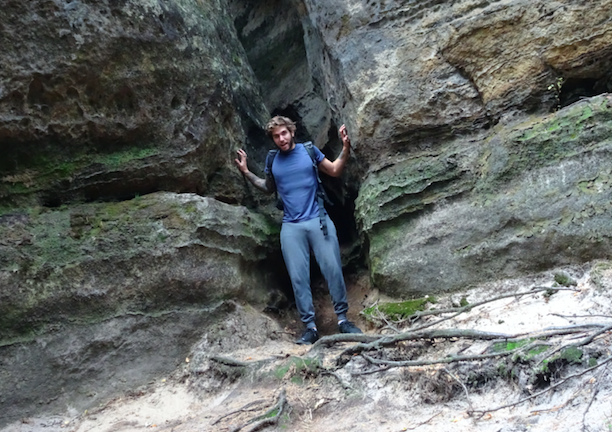
If you’d like to get started as I said check out my post about how to be a digital nomad, or my course on how to go from nothing to having an online business that generates over $2K a month doing something you love within a year.
